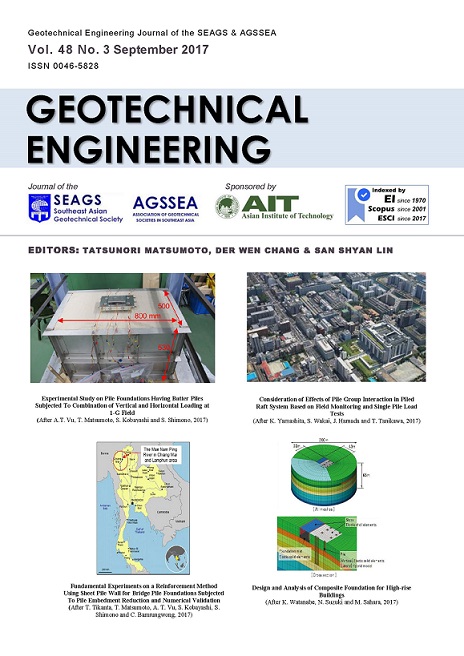Load Sharing Mechanism of Combined Pile-Raft Foundation (CPRF) under Seismic Loads
Main Article Content
Abstract
In the present work, the load sharing mechanism under seismic loads for fully hinged (H) and fully rigid (R) connected Combined Pile-Raft Foundation (CPRF) have been studied by using three-dimensional finite element based geotechnical software. The importance of connection condition has been investigated in detail. After successful validation of experimental results of the proposed numerical model of CPRF, the same model has been analyzed under different earthquake loading conditions. Results of the present analyses show that connection rigidity had little influence on vertical settlement of CPRF but had pronounced response on the load sharing by foundation components. In the purview of seismic loading, lateral stiffness played a pivotal role in deciding the load-settlement, lateral displacement, bending moment in piles and inclination response of CPRF. The load sharing by foundation components is governed by mobilization of lateral displacement. Initially, raft shares higher proportion of seismic loads but reaches to limiting value at relatively smaller displacement thereafter piles bear the remaining load. CPRF-H reached the limiting value of inclination at 4% of normalized lateral displacement which is unlike the case for CPRF-R. The findings of the present study provide insight into the behavior of CPRF subjected to seismic loads and can be used for the seismic design of CPRF.
Article Details

This work is licensed under a Creative Commons Attribution-NonCommercial-NoDerivatives 4.0 International License.
Copyright © 2019 Association of Geotechnical Societies in Southeast Asia (AGSSEA) - Southeast Asian Geotechnical Society (SEAGS).


